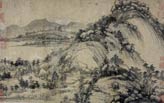Economy
China's rich travel off the beaten path, Hurun says
Updated: 2011-06-15 13:40
By He Wei (China Daily)
SHANGHAI - A list of the unique features of Chinese luxury travelers is outlined in a report released on Tuesday that helps international luxury travel providers understand the country's luxury consumers.
Youth, self-reliance and brand loyalty are the defining characteristics of luxury outbound travelers in China.
The study, based on interviews with 463 Chinese millionaires and billionaires, was put out by Hurun Report Inc, a leading publishing group famed for its China Rich List and affiliation with the International Luxury Travel Market, a high-end travel fair in Asia.
Richard Chang, general manager of Visa Inc Greater China, said the country will lead the Asia-Pacific region in economic expansion and its growth of high-net-worth individuals is likely to outpace more developed economies.
The demographic differences between Chinese and the Western luxury travelers have led to different consumer behavior, the survey revealed.
"Based on our research, the average age of Chinese millionaires is 39, whereas in the United States or Europe, the figure is over 50," Hoogewerf told China Daily.
The group usually comprises individuals who have mostly lost interest in major cities in Europe and the US and are keen to seek authenticity, simplicity, and a commitment to local environment with customized services, Hoogewerf said.
To meet this need, Orient-Express Ltd launched a series of three- or six-night rail journeys this year, connecting travelers through Thailand, Malaysia, Laos and Singapore, with an in-depth travel experience.
"The luxury travelers in China are evolving fast. Now people are seeking for more tailor-made experiences. With night trains, you can take in the local culture and, in particular, enjoy different experiences in one single journey," Andrea Filippi, executive director of Orient-Express, told China Daily.
Paul James, global brand manager of Starwood Hotels & Resorts Worldwide Inc, said his company attaches great importance to interior design and lighting, and provides iPad-friendly facilities in the bedroom, so as to "appeal to the younger, more globally exposed travelers".
The study also showed nearly 60 percent decide on travel destinations and book reservations themselves.
The high level of self-reliance has huge implications for any travel business that conducts transactions by Internet, as a majority of respondents favored online deals.
Visa, the world's leading payment platform, provides a diversified online booking portfolio to address this trend. Visa's high-end cardholders can enjoy a range of services including room upgrades, late checkout time and airport security fast-tracking, said James Lim, head of customer credit and affluent products.
Chinese luxury travelers also exhibited distinct loyalty to international cachet, the report found.
Shangri-La remains the most popular hotel brand among Chinese billionaires.
For wealthy Chinese an iconic brand is always the dominant factor when picking hotels, followed by service, facilities and locations.
Smaller vendors, too, are taking concrete steps in building brand awareness to gain a bigger share in this lucrative market.
Small Luxury Hotels of the World, for instance, has conducted a series of advertising campaigns through China's popular social networking site renren.com, which includes a monthly lottery for a 12-night stay in any of its member hotels.
Specials

When two are one
After a separation of 360 years, Huang Gongwang's famous Dwelling in the Fuchun Mountains has been made whole again.

Wealth of difference
Rich coastal areas offer contrasting ways of dealing with country's development

Seal of approval
The dying tradition of seal engraving has now become a UNIVERSITY major



